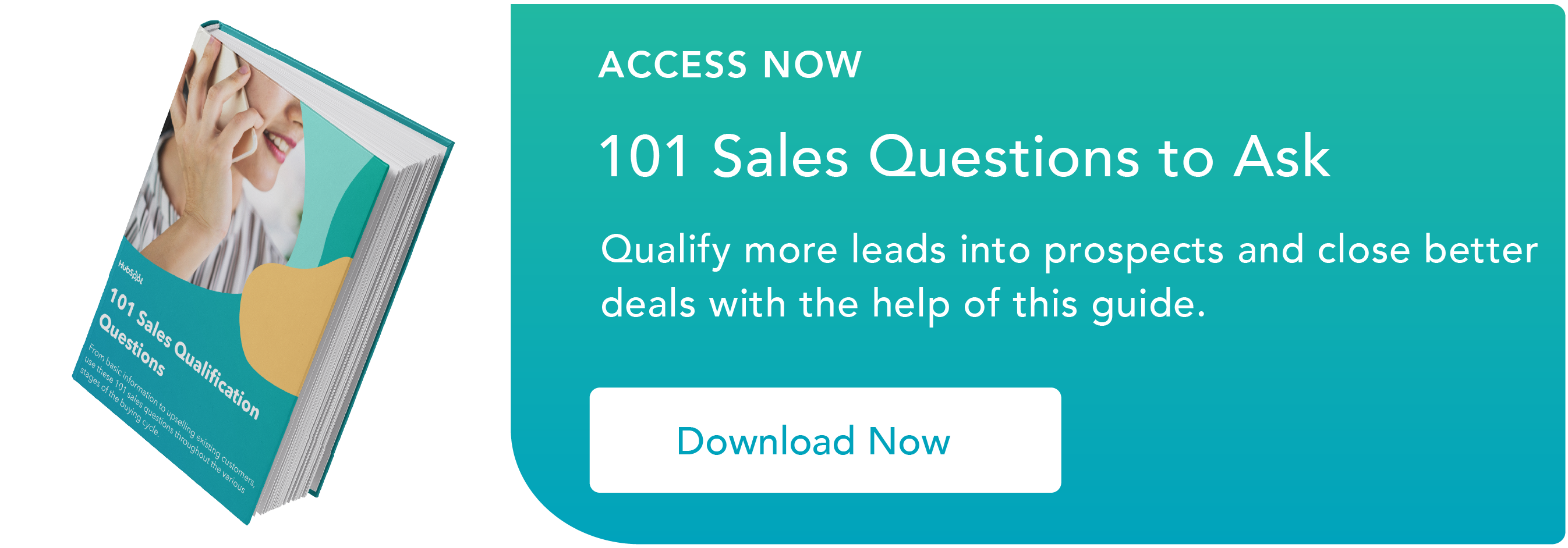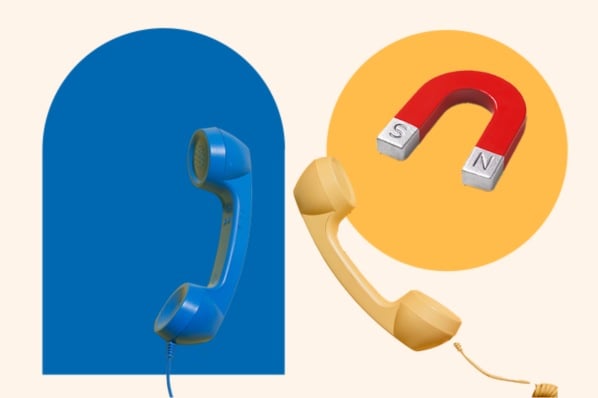Welcome to "The Pipeline" — a weekly column from HubSpot, featuring actionable advice and insight from real sales leaders.

Even if a prospect is intrigued by your offering and the results you cite, they might be intimidated by the energy, time, and resources required to navigate the buying process — along with factors beyond their purchase like implementation.
That‘s why prospects need some degree of existing motivation to buy — and you need to distinguish the buyers that have it from the ones who aren’t inclined to act if you're going to ultimately close.
But how do you get there? Well, you can start by asking these questions.
Questions for Testing Whether Your Prospect Is Serious About Buying
1. “How have you attempted to overcome this challenge in the past?”
Prospects will often try internal or moderate measures before looking externally for help. If the buyer’s problem is relatively serious, they can probably describe at least one strategy they've used.
Follow up this question with, “What were the results?”
Their answer will tell you how pressing the issue is. If their solution completely flopped or the situation worsened, they're likely looking to switch things up. If the current situation is relatively stable, their appetite for change is likely weaker.
2. “Why is this a priority right now?”
Compelling events and deadlines usually make buyers highly eager for change. Your prospect might be reacting to an industry shift or new company initiative. Maybe they‘re responsible for achieving a goal before a specific date. Or perhaps they’ve realized the true impact an obstacle is having on their business.
Those reasons — along with any other timely ones — suggest the buyer is motivated to act. However, if they respond to this question with an answer like, “It’s our slow season,” or “I had some extra hours, so I figured I’d look into this,” you should be more skeptical of their desire to disrupt the status quo.
3. “Change isn’t easy. How committed are you to revamping your [business area] strategy?”
Use this question with prospects who respond well to a direct, simple conversational style. It will help you differentiate a buyer who’s unsure if they're ready to take the plunge from a buyer who’s fully bought in.
Note, this question doesn’t mention your product. Your prospect might be sold on the idea of buying a solution, but that doesn’t mean they're sold on your solution. Once you’ve established their appetite for change, you can demonstrate why your offering is the best for their needs.
4. “Here's what it takes for a customer to be successful with our product. This usually translates to X hours/week (or some other metric that shows the extent of the commitment). Is this something you're ready to commit to?”
For many products, the real work doesn’t begin until after buyers have signed on the dotted line. Some salespeople are loath to share this fact with their prospects, believing it will scare some off — and rightfully so.
But that’s actually to the rep’s benefit. Prospects who aren’t willing to put in the time and energy necessary to realize a product’s potential aren’t good fits. They’re highly unlikely to end up buying … and if they do, they’re going to be dissatisfied.
Just as you qualify your sales prospects for need, budget, authority, timeline, and so forth, you should also qualify for commitment. This question will eliminate buyers who aren’t truly dedicated to solving their business pain. As an added bonus, it sets appropriate expectations for buyers who are serious about addressing this issue.
5. “On a scale of one to 10, with one being ‘never going to buy,’ and 10 being ‘ready right now,’ what’s your timeline?”
A deal needs significant momentum to close. The buyer might seem excited about your product and its potential benefits, but if they're dragging their feet, their appetite for change isn’t great enough. To increase it, help them calculate the costs of inaction. What are the negative consequences of maintaining the status quo?
Ideally, your prospect will give an answer in the seven to nine range. That indicates they’ll be making up their mind fairly soon. Anything lower suggests this deal isn’t one of their top priorities.
6. “What’s your implementation plan?”
If your prospect is in the Decision stage of the buyer’s journey, they‘ve honed in on a specific solution type. Now they’re comparing individual vendors to see which product best fits their needs.
But making it to this stage doesn’t guarantee a purchase. To see how dedicated the buyer truly is, ask about their plan for implementation. If you’re selling a non-software product, ask, “Where do you see this product fitting into your [process/routine/existing toolkit]?”
Committed prospects will have some idea — if not a fully fleshed-out strategy — of how they’re going to introduce a product to their team or integrate it into their workflow.
When your prospect says, “I don’t have an implementation plan,” “I haven’t gotten that far yet,” or a similar answer, don’t automatically write them off. This gives you an excellent opportunity to add value and win authority. Offer to guide them through the implementation process or help them figure out how exactly she’ll use the product.
7. “Who else will be involved in making this decision? Do they know we’re speaking?”
Jeff Hoffman, creator of the YourSalesMBA™ training program, uses this question to determine how serious buyers are.
If your prospect is highly anxious to change, they'll bring in other decision-makers as soon as possible. The earlier they’re involved, the faster the buying process will be.
A prospect who’s less enthusiastic will probably put off this step. It’s a waste of time to involve their peers when they don’t know whether they want to pull the trigger.
If your prospect falls into the second camp, consider politely pushing back. You might say, “We’ve spent some time discussing [X challenge] and [Y objective.] It seems like accomplishing [results] would make a big impact for you. Is there a reason you haven’t brought in the other members of your team?”
Sometimes, you need to show highly motivated prospects your solution is the best for their situation. But sometimes, you need to prove they need a solution at all before you can show the value of your specific product. These seven questions will allow you to separate the first type of buyer from the second.
![Free Download: 101 Sales Qualification Questions [Access Now]](https://no-cache.hubspot.com/cta/default/53/e97d6603-b40e-4085-ad55-0074b7351ead.png)
![21 Signs Your Buyer Is a Poor Fit [Sales Process Checklist], According to HubSpot's Former Sales Director](https://blog.hubspot.com/hubfs/Bad fit checklist.jpg)





![What a Client Intake Form Is & What It Should Look Like [Template]](https://blog.hubspot.com/hubfs/CLIENT INTAKE FORM (1).jpg)


